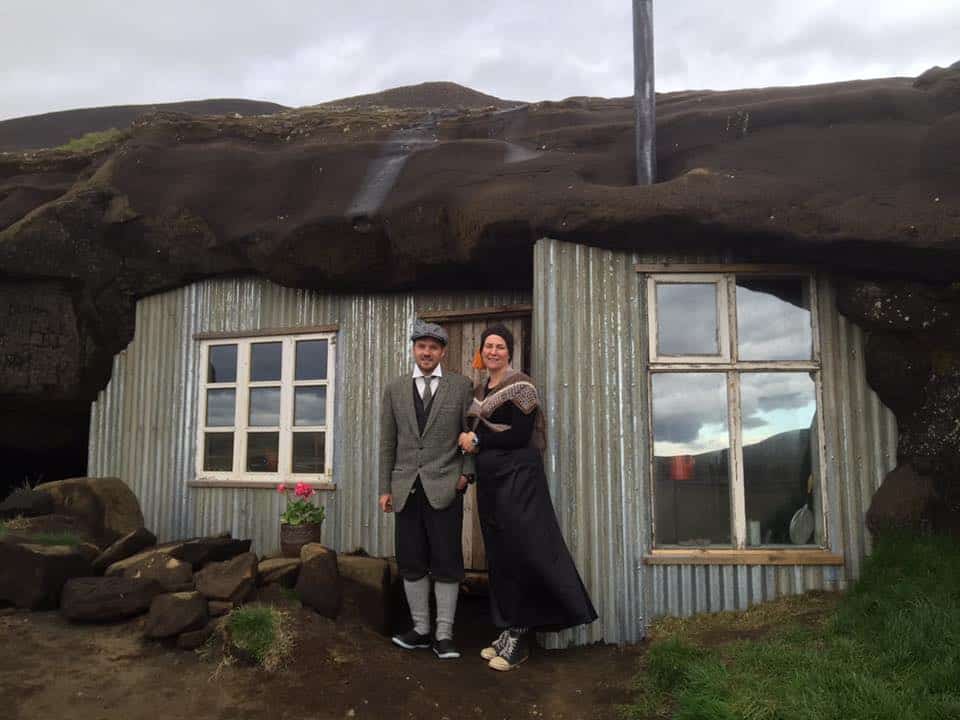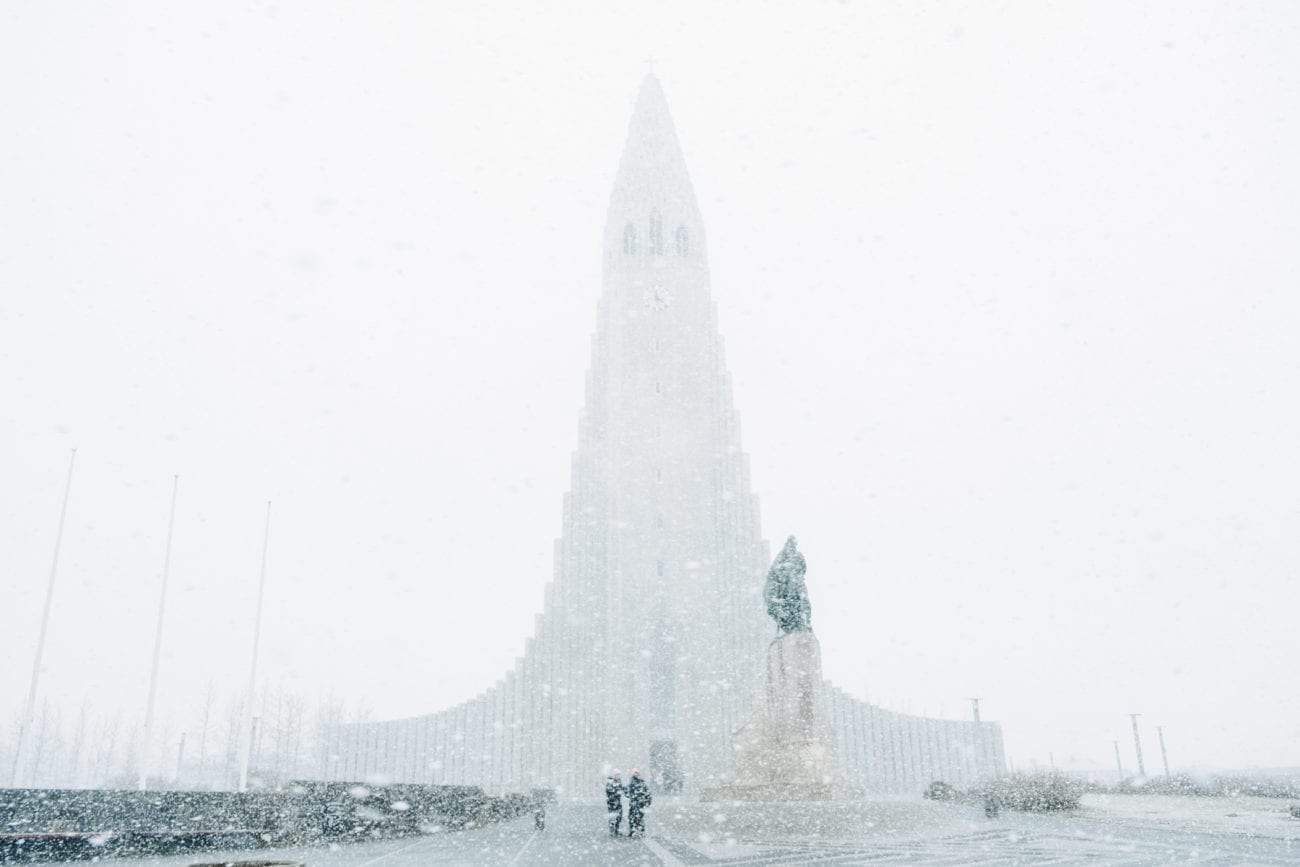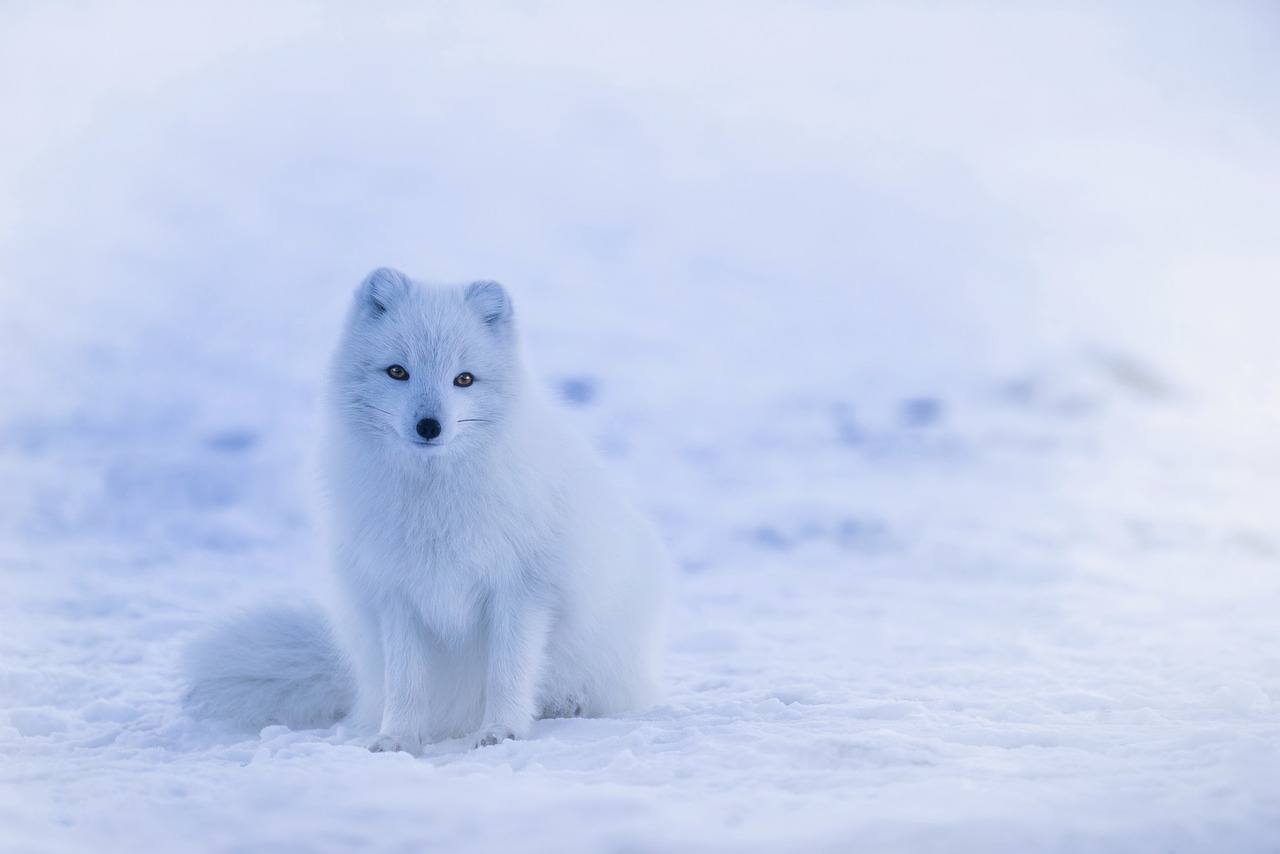Icelandic Traditions, Customs & Habits That You Might Find Strange
The modern Icelander is a stylish, tech-savvy and well-informed human. However, the ties to old traditions and superstitions are strong. And, there are a number of things that seem normal in Iceland that might look strange to an outsider. So to prepare you for your Iceland trip we’ve collected a list of Icelandic customs and habits.

Thorrablot – the festival of ram testicles, shark & hard liquor
In spite of being a rather casual society, there are a lot of rigidly upheld traditions in Iceland, especially when it comes to food. The most prominent one of these is the Thorrablot. The old Norse month of Thorri is celebrated throughout Iceland in January – February. When families, or even whole counties, get together and eat traditionally prepared food like boiled sheep’s head, pickled ram’s testicles and fermented shark.

Luckily preservation methods in Iceland have improved and we no longer need to pickle or ferment our food in order for it to keep. Nonetheless, Thorrablot is a lovely way to see friends and family and pay tribute to the old ways and our ancestors.
The Icelandic Over the Top 3-Day Food Fest
Around Late February early March each year Icelanders celebrate Bolludagur (Bun Day), Sprengidagur (Shrove Tuesday) and Oskudagur (Ash Wednesday). Instead of Ash Wednesday being the start of Lent, in Iceland, it marks the end of a three-day feast where Icelanders eat their weight in both sweet and savory goodies.
On Bun Day children make traditional Bun Day wands which they then use to spank their parents into giving them creamy, chocolate buns. One bun for each spank makes for a lot of sore adult behinds.

Shrove Tuesday (a more literal translation would be Eat-Till–You-Burst-Day) brings copious amounts of salted meat and peas to counteract all the sugar from the day before.
Third and last is Ash Wednesday, a kind of Icelandic Halloween. Children dress up in costumes and go into shops to sing for candy. As it turns out, our children have a strong work ethic, especially when it comes to candy.
It is also tradition to make small pouches and sneakily hang them on people’s backs without them noticing. Although we see less and less of this every year.
Sheep Roundups
September and October are exciting months for farmers and sheep-enthusiasts alike, since that’s when the sheep round-ups take place. Icelandic sheep roam free during the summer. However, since they are sheep and not migrant birds they don’t know when the time has come to move to warmer places (i.e. the barn). So someone has to go get them and that’s where the round-ups come in. Farmers, with the assistance of friends and family or casual acquaintances, round up all the sheep in the area into special corrals.

Luckily sheep are creatures of habit and every farmer will know their sheep’s favorite area to hang out, so they are usually pretty quick to find most of them. Once all the sheep are safely in the corrals the sorting begins as each farmer seeks out his or her sheep.

This is a lively event, with people cheering each other on and usually passing around a flask of some liquid courage. In the evening, once all the sheep are safely in their right place, a ball is held where people can rejoice in a good day’s work and put that liquid courage to more romantic uses.
Want to know more about Farms in Iceland?
The Icelandic Naming System
Icelanders don’t have family names. Or at least not in the sense that you might know them. Our family names are much rather those that are commonly used in the family. For example the first name Freyr (male) or Anna (female). If the grandfather carries the name (and is well-liked) chances are his children will want to name after him and the same goes for the grandmother.

In the majority of the cases children take their father’s first name as their last name adding a -son or a -dóttir depending on their gender. So, if Freyr Jónsson and Anna Þorsteinsdóttir are a couple and have a baby named Björn, he will most likely be named Björn Freysson. Furthermore, if they had a daughter she could be Kristín Freysdóttir. So, in this family of four, you have four different last names: Jónsson, Þorsteinsdóttir, Freysson and Freysdóttir.
Women do not take up the last names of their husbands in Iceland nor do the men take up the last names of their wives. Icelanders tend to get a name a stick with it!
Icelandic Namesakes
But this is also where it gets complicated. So, let’s give an example.
Our new hypothetical couple Einar Gunnarsson and Sigrún Felixdóttir have two children. A boy named Gunnar and a girl named Ingibjörg. Those children are then Gunnar Einarsson and Ingibjörg Einarsdóttir (the son and daughter of Einar). Gunnar then has a son that he names Einar after his father. His son is then Einar Gunnarsson, which is what we call an alnafni which basically translated to complete-namesakes. However, if Ingibjörg has a son with her wife and they name him Einar Ingibjargarson he is ‘only’ a nafni (a namesake) but not an alnafni.

The funny thing about this is that we use these words A LOT. When you carry the same name as someone else. Even when it is someone completely random, you will commonly say “sæl nafna” (hello namesake) when you greet that person.
The male version is nafni but the female version is then nafna!
Icelanders Have 6 Months to Name their Children
Yet another seemingly strange naming tradition has to do with time. Icelanders are in no rush to name their children. Around the world people announce their childrens’ births using their given names but in Iceland it will simply be “our girl was born this morning, she weighed 3,829 gramms and was 49 cm long, everyone is healthy and doing great”.
The name is not announced until the christening or the naming ceremony (for those less religious). However, this ceremony can be held months after the baby’s birth. Some say that this is why many Icelanders have nicknames that have nothing to do with their actual names. Just something that stuck during the period that we waited for their “real” name.
Legally Icelandic parents have up to six months to register their baby’s name however if you wait longer than that you will actually get fined (about 1500 ISK a day).
Want to read more about Icelandic Names?
Icelandic Superstition When it Comes to the Weather
Weather, perhaps not surprisingly, plays a big part in the lives of Icelanders. It is a fickle beast, untamable with a big temper and is not afraid to show it. Even so, Icelanders have tried their best, throughout the times, to understand her and not to set her off. Through these attempts, many traditions and customs have been born. For example, you never step on a blacksmith (a black beetle) because it will bring rain. By the same token, you never leave your rake pins up as it will also bring rain.
Dreams also play a big part in our superstition. If white sheep appear in your dreams, chances are that it will snow for as many days as the sheep.

Icelanders also have their version of the poem: “Red sky at night, sailor’s delight. Red sky in morning, sailor’s warning.” But it goes “Kvöldroðinn bætir og segir satt. Morgunroðinn vætir og mígur í hatt.” Roughly translates redness at night improves and tells the truth. Redness in the morning dampens and pisses in the hat. Sometimes, Icelandic sayings have this way of being charming yet in no way polite.
Icelandic Superstitions When It Comes to Your House
Various superstitions are common in Iceland, so much so that behavior related to them has passed into tradition. When moving into a new house bring bread and salt first so your home will never lack food. But don’t let anyone try and give you a knife. Knives must always be bought, even if it’s just for 1 ISK Króna, otherwise it might harm your relationship with the giver and bring bad luck.
To Art of Un-Jinxing
Yes, that is a thing in Iceland. We might consider many things to bring bad luck but we also have ways around it. Knocking on wood to avoid tempting fate is common in a lot of countries but in Iceland you need to say the numbers 7-9-13 out loud as well. These numbers are considered to have a special power, and by saying them you are doubly protected from the fickle moods of fate. Thereby un-jinxing what you just said.
Example: “Wow, everyone has been getting the flu but me”. At that moment, you realize you just jinxed yourself and rush to knock on real wood saying “7,9, 13” and, just like that, your (miniature) curse is lifted!
Icelandic Superstition When It Comes to Love
If someone offers you a piece of the licorice candy Opal (Icelandic licorice is delicious, this is an undisputed fact) make sure you take two pieces unless you want to be single for the rest of your life.

Winning in cards can also mean that you will have bad luck when it comes to love or at least that’s how you shame your opponent when they beat you at the game. We say “lucky in cards, unlucky in love”.
The third thing is when you raise your glass to toast your fellow diners you better look them in the eye or your love life will suffer. With all these romantic perils it’s no wonder there’s only 360.000 of us in the country!
Want to learn more about Romance in Iceland?
The Icelandic Way of Dealing With Boogers
When you live in a country that is named after ice chances are that you will catch a cold or two (read 72) in your lifetime. However, Icelanders do not deal with boogers in the way that most nations do. We do not blow our noses, especially not in front of other people. Actually, we find it quite rude.

What we, however, find to be okay, is simply to suck the boogers back up. We will do this about 100x before eventually going into the bathroom and blowing our noses in private. Like it’s something that needs to be hidden, kept out of sight and hearing. Now that you know, you’ll start to notice. We simply are a nation of suck-ups (pun intended).
“Thanks For Last Time”
The people of Iceland are very friendly and courteous. It is customary everywhere to thank people for dinner or for a favor they’ve done for you, but Icelanders also thank each other for time they spend together, especially if it was for a special occasion. So if you see someone you were with at a wedding or a birthday party recently, make sure to tell them “thanks for last time” or “takk fyrir síðast”.
Talking about the Weather, Non-stop
If you find yourself in an awkward conversation with an Icelanders you can always switch on over to the topic of weather and the moment is automatically saved. We like to talk about it when it’s sunny, when it’s rainy, when it’s windy and when it’s snowy. But especially when it’s all at once. We’ll even talk about the weather a few days ago or the forecast for next week. It really doesn’t matter, as long as you let us talk about the Icelandic weather.